How Negative Reviews Impact Your Business (and How to Fix Them Fast)
Your Guide to Local Reputation Marketing: Best Practices and Tools
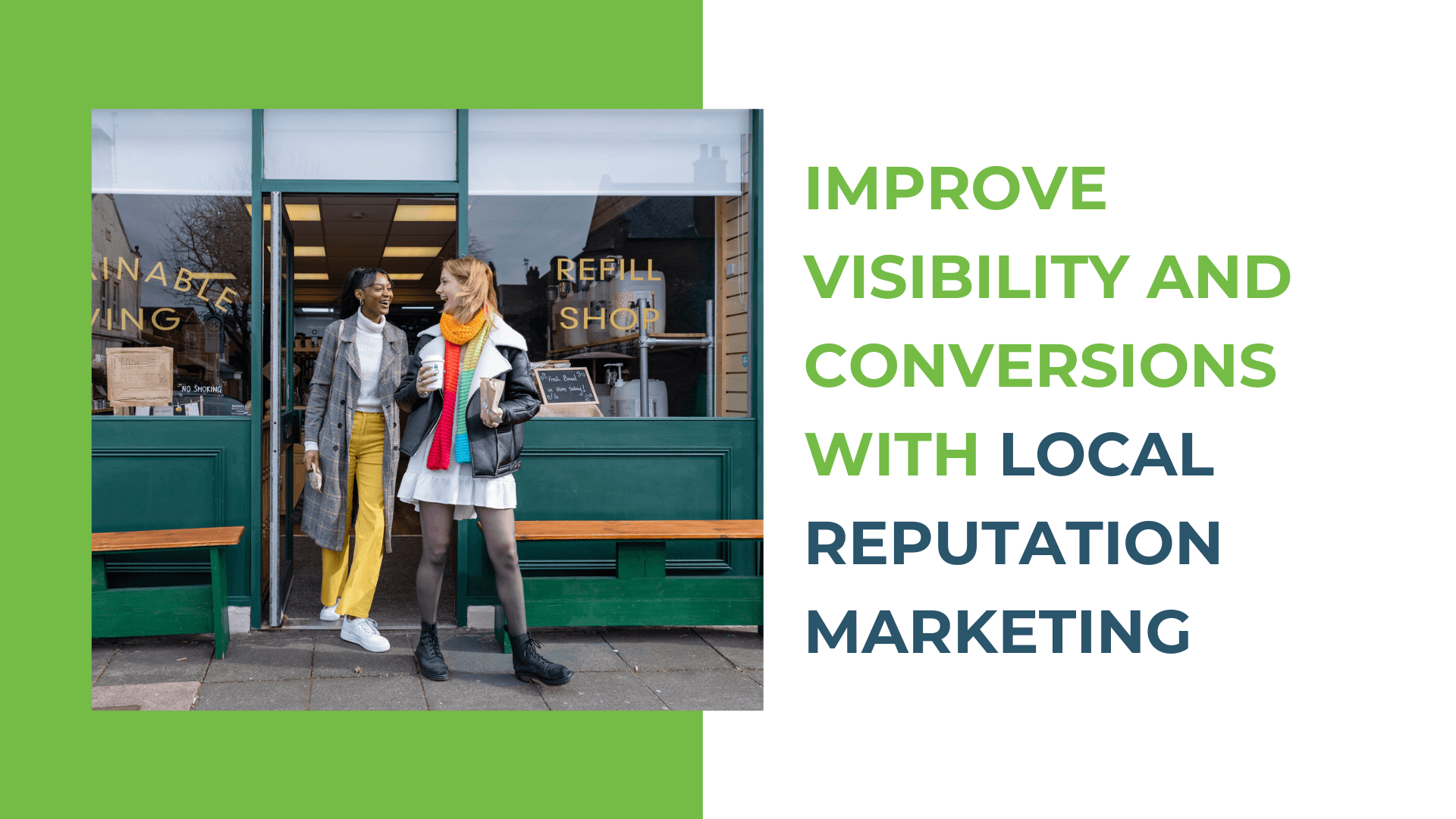
Your Guide to Local Reputation Marketing: Best Practices and Tools
Today, consumers are searching locally for products and services. According to our research, 91 percent of consumers search online for local business information. When searching, consumers are also considering local businesses’ online reputation. Ninety-eight percent of consumers feel reviews are essential when making a purchase decision. Therefore, companies need to invest in local reputation marketing.
In this blog, we’ll define local reputation marketing, give four tactics to manage it effectively, and explain the benefits of local reputation marketing.
Let’s get started!
What is Local Reputation Marketing?
Local reputation marketing, often referred to as local reputation management, refers to promoting and managing a business’s reputation within its local community to increase visibility and attract customers.
When consumers come across your local business online, you want them to feel confident visiting your store or purchasing from you. A poor reputation can quickly turn potential customers away.
Think of local reputation marketing as a way to connect with customers and ensure your local businesses and brand are positively received.
Implementing a local reputation marketing strategy will improve awareness and local search rankings, and help you gain more customers from competitors.
The 4 Best Local Reputation Marketing Tactics
Below are four unique local reputation marketing strategies you can use to manage and improve your business’s reputation at the local level.
1. Update Your Local Listings
Part of marketing and managing your local reputation is ensuring local consumers can find your stores and quickly decide to do business with you. Multi-location businesses must optimize their local listings so consumers can find them on search engines like Google.
Before optimization, you must claim your local listings on major directories like Google, Apple Maps, Bing, Facebook, etc. The most important local listing is your Google Business Profile (GBP) since 93 percent of people worldwide use Google.
Include the following information and details on your local listings and ensure they’re accurate across all directories:
- Local store’s name, address, phone number (NAP)
- Business category
- A link to your website’s local landing page
- High-quality images of your store, products, and people
- Calls-to-action (CTAs) such as “order delivery” or “schedule an appointment”
- Reviews and your responses to reviews
- Links to your local social profiles
- Payment forms accepted
Here’s an example of a local Nekter Juice Bar listing on Yelp:
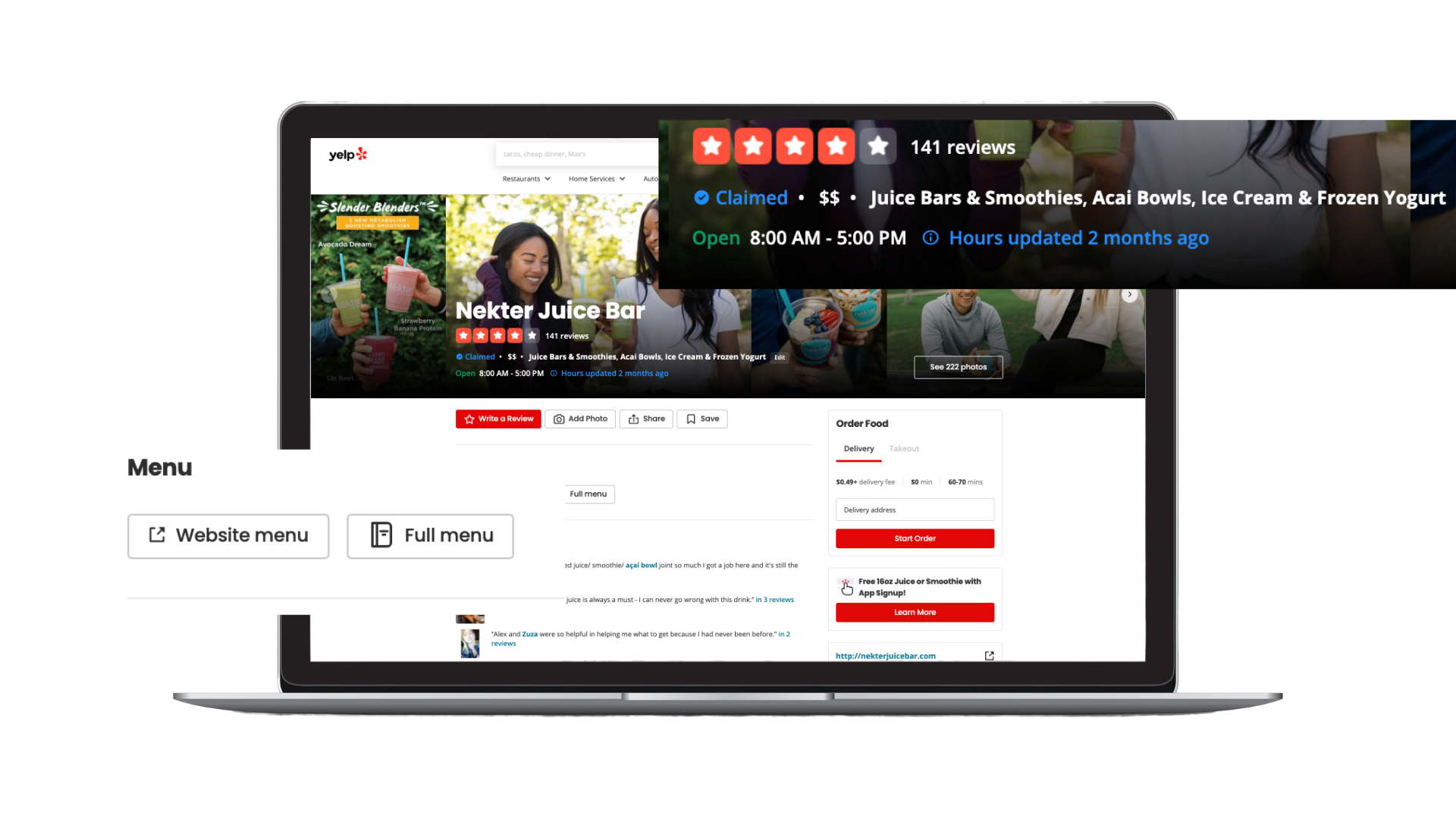
Implementing the tactics above will improve your local listings’ rankings, which boosts online traffic and conversions. Our Top Ranking and Conversion Factors for Local Search report found that businesses in the Google 3-Pack receive 126 percent more traffic and 93 percent more actions (calls, website clicks, and driving directions) than businesses ranked 4-10.
2. Publish Local Social Content
Another aspect of local reputation marketing is localized social media, often called, local social. A local social strategy consists of creating local social media profiles associated with individual stores and publishing engaging local content.
If you haven’t done so already, you need to create local social profiles on a few of the top social media platforms like Facebook and Instagram. Then, you want to consistently post appealing content to get traction and bring consumers to your stores.
Here’s the type of local social content you want to post:
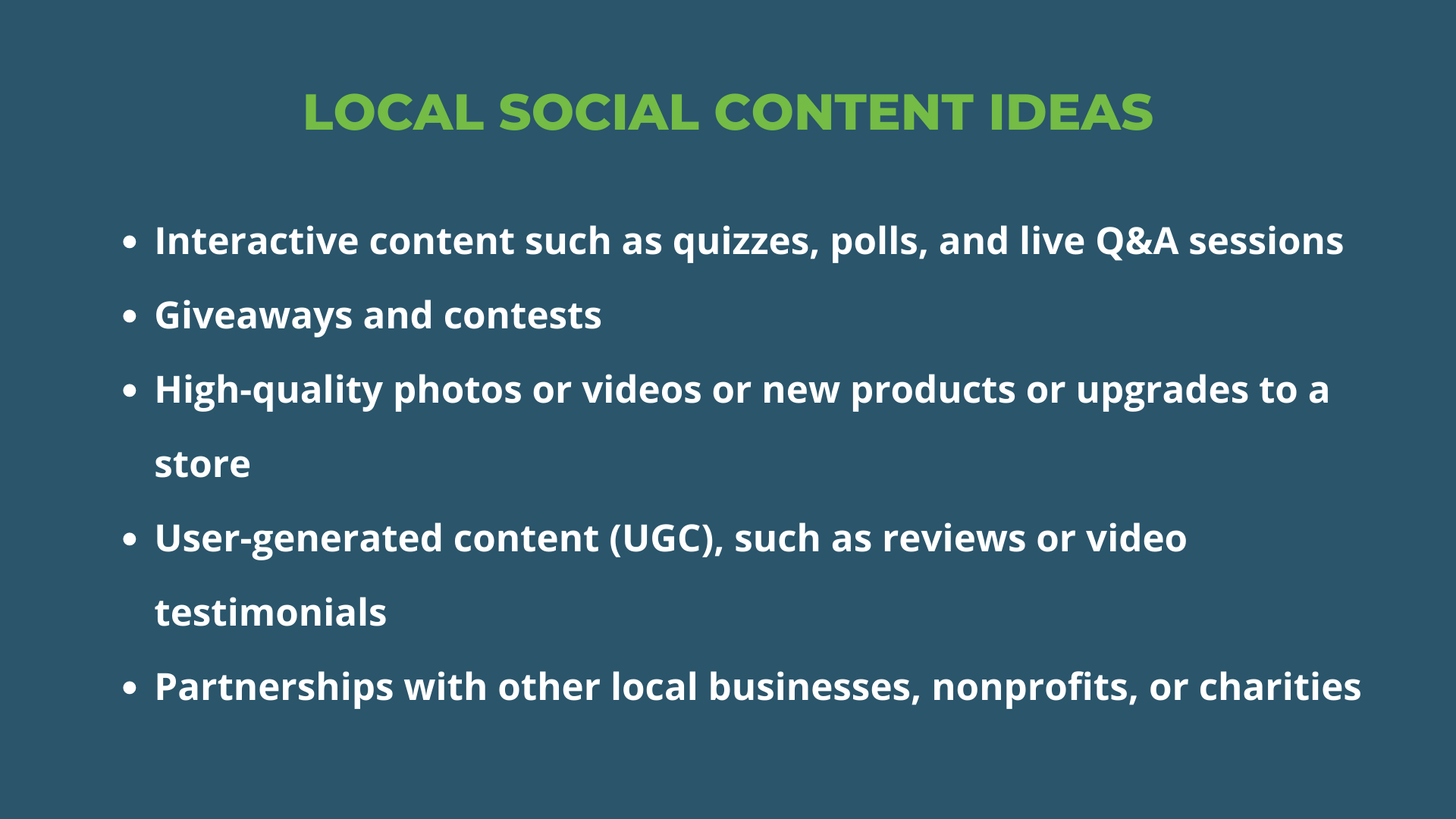
Creating an active local social strategy can help with online reputation marketing by allowing you to engage with your local community, respond to customer feedback, and showcase their positive reviews and ratings, which can ultimately enhance their online reputation and attract new customers.
3. Manage and Respond to Reviews
An essential aspect of reputation marketing is managing and responding to reviews. Reviews matter to consumers; the data speaks for itself:
- Nearly eight in ten consumers seek out websites with product reviews.
- Forty percent of consumers expect a response to their negative reviews within 24 hours of posting them.
- Eighty-seven percent of consumers are willing to change a negative review depending on how the business responds.
As you can see, it’s essential to constantly monitor your social media profiles and local listings for reviews or feedback and to respond within 24 hours or as soon as possible. In general, we recommend responding to the most recent negative reviews first. Afterward, you can then begin to respond to positive reviews.
For an in-depth discussion of how to respond to reviews, read our Multi-Location Marketer’s Guide to Online Reputation Management.
4. Gain More Reviews
Not only is responding to reviews an essential part of local reputation marketing but so is generating reviews. A high volume of reviews and ratings impacts local search rankings and conversions.
Our Top Ranking and Conversion Factors for Local Search report found that GBPs ranked number one in the local pack/finder average 404 reviews, compared to those three through five, which average 280 reviews. Therefore, there’s a clear correlation between review volume and local search ranking.
Review volume also impacts conversions. According to our The State of Google Reviews research report, for every ten new reviews earned on your GBP, conversion improves by 2.8 percent. Additionally, if you increase your average star rating by one full star, conversion improves by 44 percent. See the correlation below.
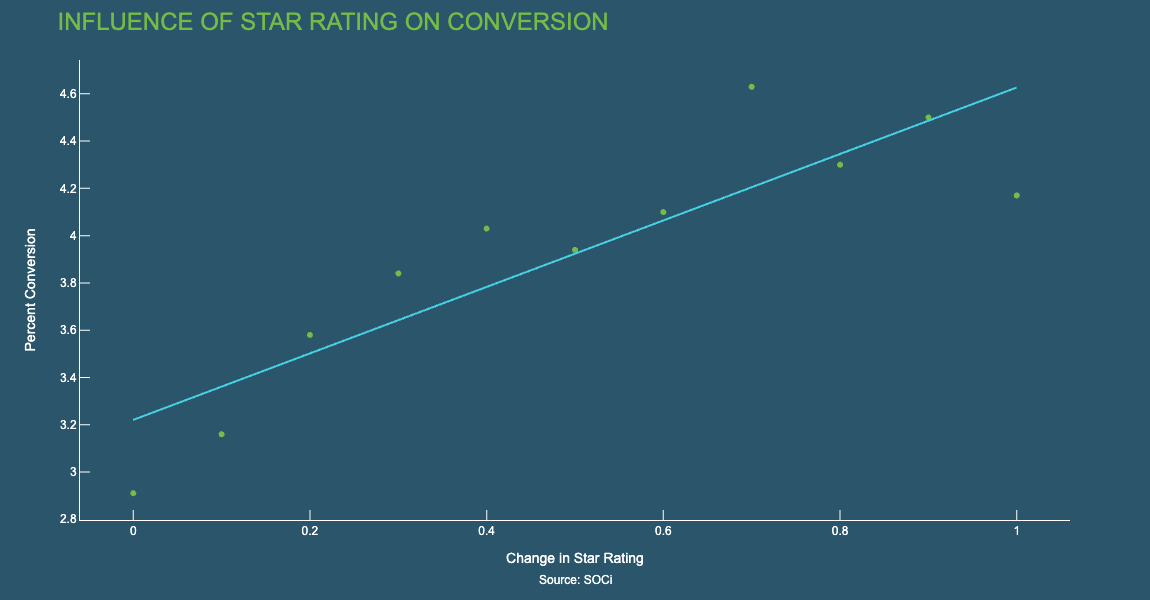
Here are a few ways to generate more reviews to your local listings:
- Encourage residents to leave reviews through a chatbot conversation, email, SMS text, or other channels
- Include a review link to your GBP when requesting reviews
- Utilize social media to encourage feedback, reviews, and ratings
- Respond to reviews to show current and potential customers you care about their opinions
Benefits of Local Reputation Marketing
Having a local reputation marketing strategy can help your local businesses win more customers and ultimately make more money. To recap, below you’ll find the main benefits:
Increased visibility: As we mentioned earlier, optimized and updated local listings and a high review volume often results in higher local search rankings. You’ll get more online visibility, improve local awareness, and gain more customers.
Improved reputation: These positive reviews and ratings from local customers can help build trust and credibility. Overall, these reviews will enhance your local reputation.
Better customer experience: Monitoring reviews can help a business stay aware of customer feedback and make improvements to enhance the customer experience. You’ll also be able to address these improvements in your marketing and messaging campaigns.
Beat out local competitors: This increased local visibility, reputation, and customer experience improves customer loyalty and retention. Altogether, these benefits make you more attractive compared to competitors and help you increase sales and revenue.
Choosing the Right Local Reputation Marketing Software
Managing your local reputation marketing for one business is challenging; doing it across multiple locations is more nuanced. That’s why you need software built for multi-location businesses. This is where SOCi comes in!
SOCi is the marketing platform for multi-location brands. It can help you manage your local reputation across 100s or 1,000s of locations. SOCi’s software and services will help you manage and report on your local listings, local social media, reviews, and more — all from a single login.
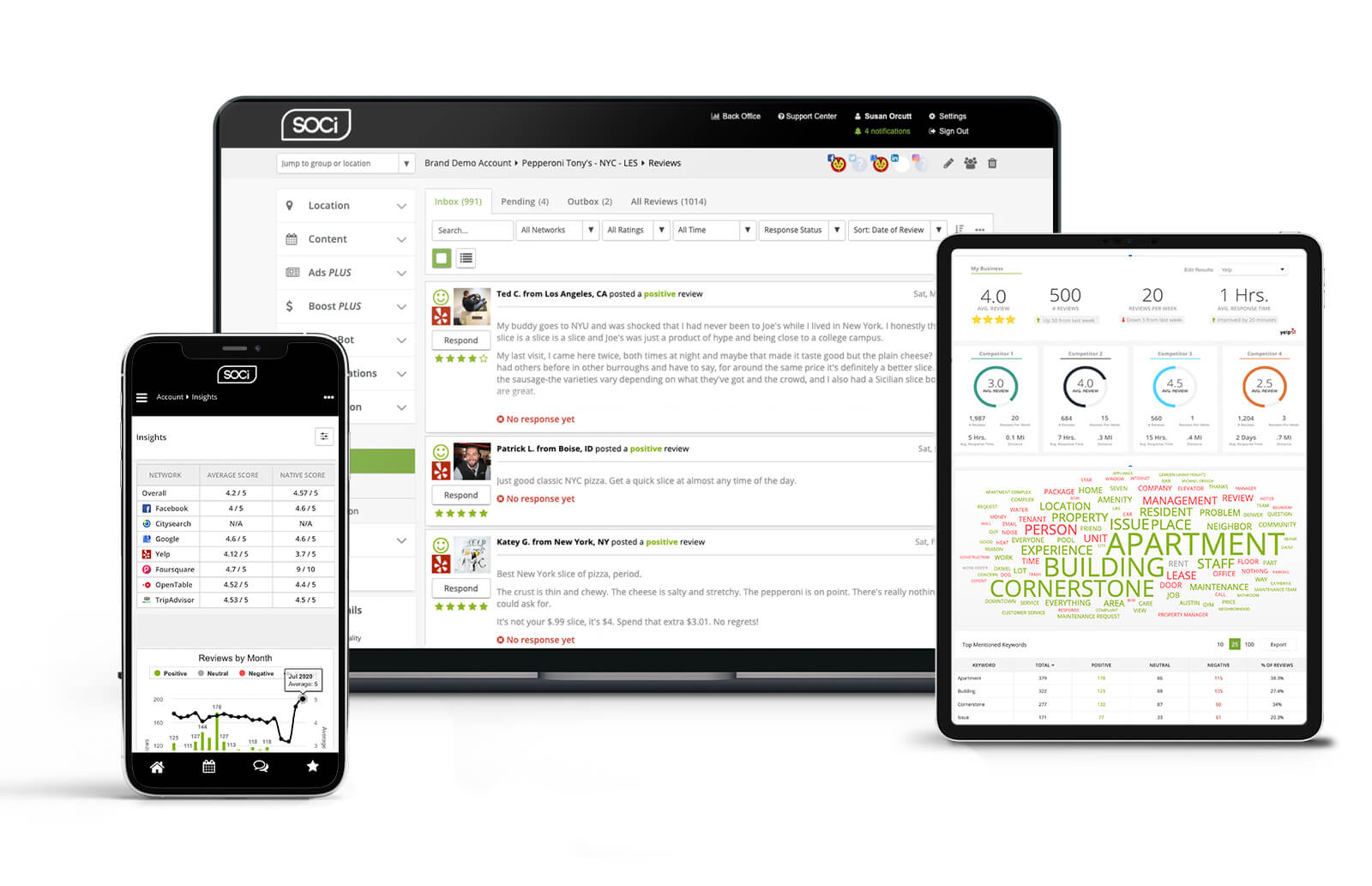
Request a demo today for additional insight into how SOCi can help you dominate your local presence and boost online visibility!






